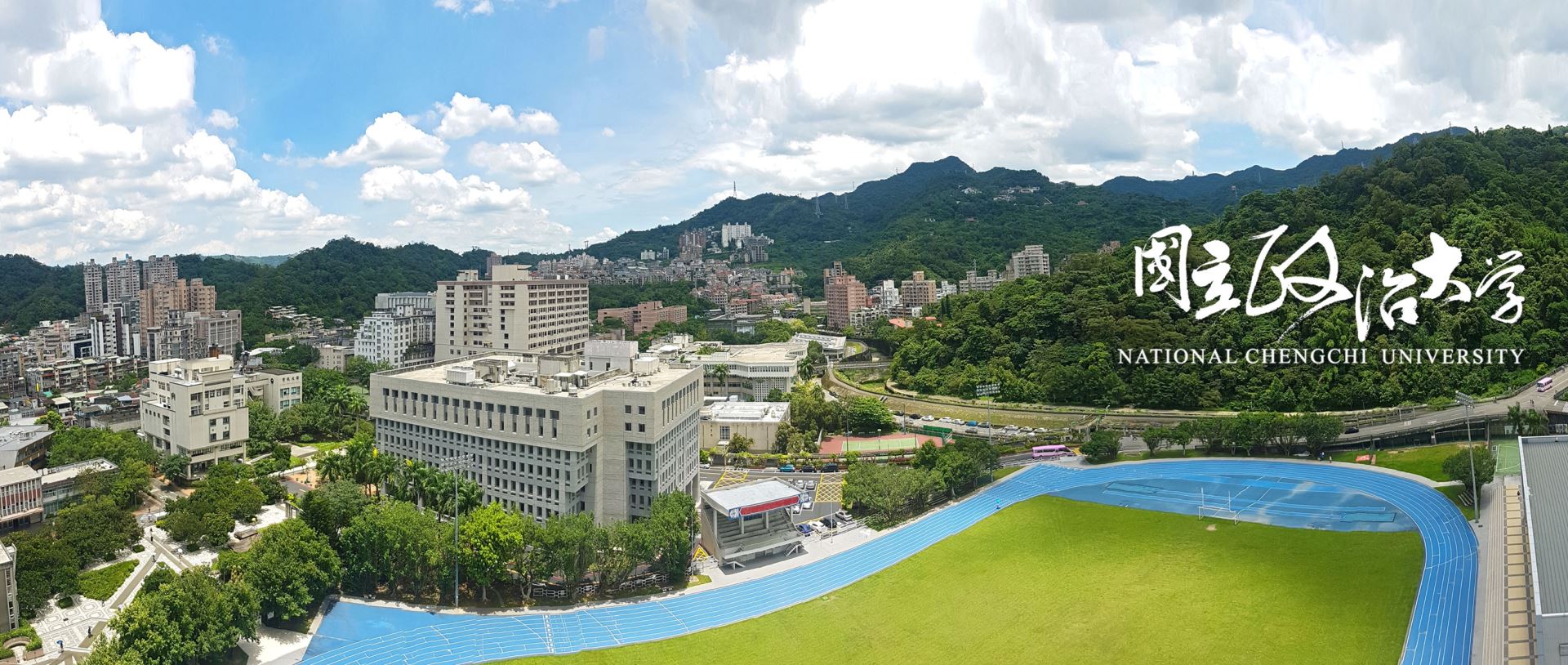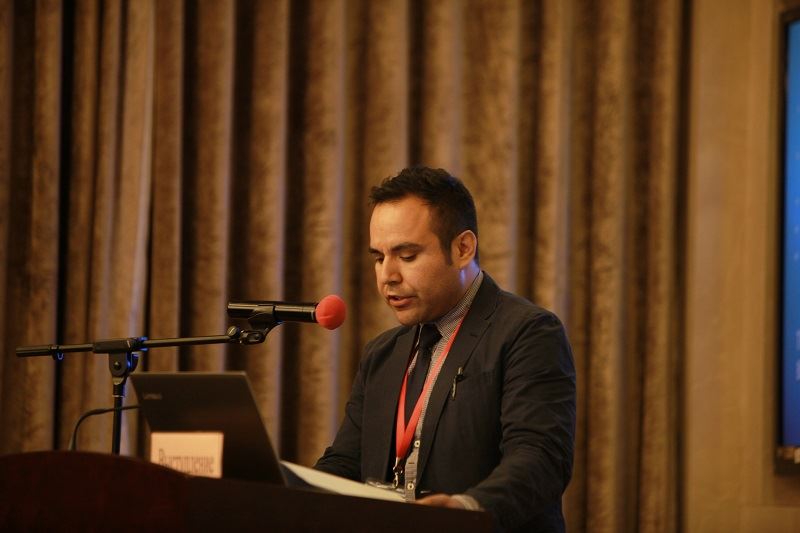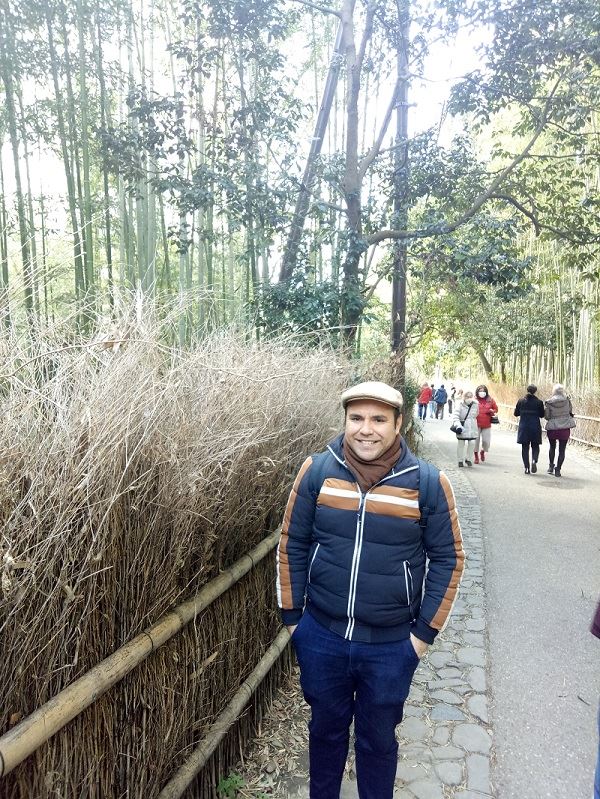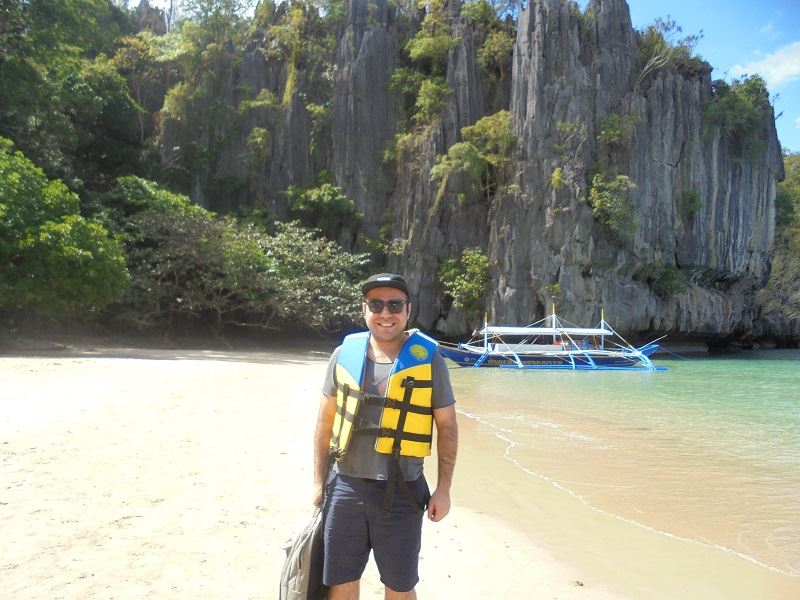By Maria Wilkinson
In 2011, Professor Fabricio A. Fonseca was first entering Taiwan on a student visa. Now, eleven years later, Fonseca maintains his status in Taiwan as a professor at National Chengchi University (NCCU) in the Department of Diplomacy. He credits his research niche of Latin America and East Asia to be one of the reasons why he has been able to stay in Taiwan and why he wants to continue to stay in Taiwan.

▲Photo credit to NCCU
During Professor Fonseca’s undergraduate career, Fonseca had an interest in foreign languages and other cultures. At that time, China was rising and the emergence of China and Asia appeared to be the future. This convinced Fonseca that he needed to know more about China and East Asia. As an International Relations student, in the city of Guadalajara, Mexico, Fonseca was required to do an internship in any embassy or consulate overseas. Fonseca was accepted at the Mexican consulate of Shanghai and spent his Summer there between his Sophomore and Junior year of his undergraduate studies.
From that experience, Fonseca knew he wanted to specialize in Asia. When he finished his Bachelor’s, he chose to do his Master’s at a research institution, El Colegio de México (Colmex) in Mexico City. Part of his Master’s study included morning language courses and afternoon history, economics, and politics classes. It was during his Master’s studies that Fonseca began to improve his Chinese language ability.
His experience of language learning during his Master’s was what guided him to Taiwan. Searching for an immersive teaching of the language, Taiwan caught his eye. Through his research, he found that Taiwan’s Chinese language centers tended to have smaller class sizes in comparison to centers in China. At NCCU, there were no more than 12 students per class. Fonseca was granted the Huayu Enrichment Scholarship to learn Mandarin in Taiwan for one year. Quickly, by the 9th month in Taiwan, he was able to communicate with great improvement in comparison to when he had first arrived.
At the end of the year, Fonseca had a few options. He could return to Mexico or he could remain in Taiwan to do his Ph.D. After a year of an explicit focus on improving his Mandarin ability, there was a fear that returning to Mexico came at the cost of losing his new language ability.
While studying at the NCCU Mandarin Center, Fonseca met students from the International Doctoral Program in Asia-Pacific Studies (IDAS). Through conversations with IDAS students and knowing NCCU’s reputation as one of the best universities in Taiwan for International Affairs related studies, he decided to apply to the program.
From Fonseca’s roots in Mexico/Latin America and his time spent in Asia, he had a key specialization in the two regions. At the time that Fonseca was considering his Ph.D. research and before 2018, the investments by Taiwanese firms in Mexico exceeded those of Chinese firms despite China having a larger GDP. So, with the help of some professors at NCCU studying Latin American Studies, Fonseca set forth to do his research that would seek to understand this phenomenon. Fonseca returned to Mexico to do his field research of interviews with Taiwanese investors in Tijuana, Mexico.
While carrying out his interviews, he found that learning Mandarin prior had helped to conduct his interviews. Using Chinese allowed for better understanding at times and helped to gain the trust of interviewees. The Ministry of Economic Affairs and the Representative Office of Mexico also provided a great deal of support for Fonseca’s research by helping Fonseca contact business people in Tijuana.
His research, titled Taiwanese Investment in Mexico and Unbalanced Taiwan-Mexico Trade Relations (遵循不同發展途徑:墨西哥台資與失衡的台墨貿易關係之探討), found that at that time, between 2016 to 2017, Taiwanese business people were still favoring their presence in China rather than Mexico. Mostly, Taiwanese business people went to Mexico because of the request of their US partners asking for closer proximity.
Despite the larger market for Taiwanese business people to be in China, Fonseca wanted to understand Taiwanese business people’s motivations for moving to Mexico. What he found was that many companies from other countries had moved their industries to Mexico for closer proximity to the US market, such as Japan back in the 1990s. The companies that were set in place by Japanese business people were later abandoned because of changes in the Japanese market. Once Japanese business people had left, Taiwanese business people moved in and picked up where the Japanese business people left off.
With the publication of his Ph.D. research and his degree in hand, Fonseca was at another crossroads. For international students looking to stay and work in Taiwan after finishing their Ph.D., Fonseca suggests finding the right niche that meets your needs and fits into Taiwan’s academic needs. For Fonseca, he had a clear niche in Latin America studies and East Asian studies and he was fortunate to be present when opportunities arose.
After finishing his Ph.D., Fonseca had the opportunity to work as an Assistant Professor at Chihlee University of Technology in New Taipei City at the center of Latin American Economy and Trade Studies. At the end of his first year at Chihlee, Fonseca was granted a position as an Assistant Professor at Tamkang University in their Graduate Institute of Latin American Studies. After three years at Tamkang, a position opened for a professor specializing in Latin American studies in the Department of Diplomacy at NCCU.

▲Photo credit to Professor Fabricio A. Fonseca
In February of 2022, Fonseca found himself returning to the school where he had begun his journey just eleven years prior. When interviewing Fonseca, we sat in his office on the ninth floor of the north wing general building. His experience of starting at the NCCU Mandarin Center and ending as a professor at NCCU brought his story full circle. Fonseca spoke humbly of his major accomplishments and felt optimistic that others could follow in a similar path with the necessary variables as he had described of a niche and opportunity.
When asked why studying Taiwan and Latin America was important, he highlighted that it was not only important to study the countries that have diplomatic relations with Taiwan, but those that do not. Which is where he spends most of his research focus. It is important to understand the relationship between Taiwan and countries with official ties, Fonseca said, but when looking at countries that have unofficial relations with Taiwan, researchers can get a better understanding of the role that Taiwan seeks to play in the international community. There are potentially many synergies that Taiwan can have with Latin America.
If you find yourself interested in Fonseca’s research history, consider taking one of Fonseca’s courses next semester (Spring 2023), he will be teaching two courses for the Department of Diplomacy. For undergraduates, the course International Development Studies is available, taught all in English. For Master’s, Regional Studies – Latin American Regional Development and International Relations is available, taught in half English and half Chinese.

▲Photo credit to Professor Fabricio A. Fonseca

▲Photo credit to Professor Fabricio A. Fonseca